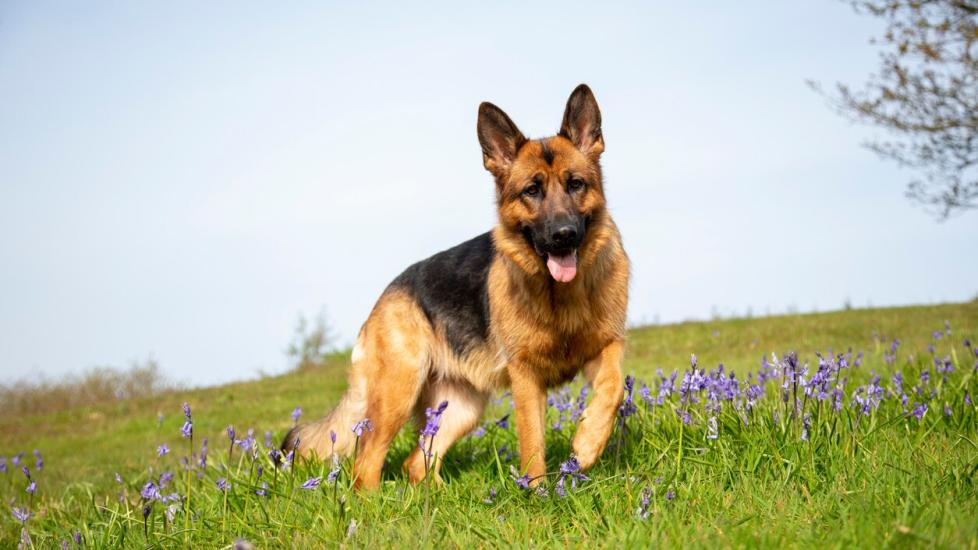
Expert Tips for Caring for Your Aging German Shepherd
Share
Owning a German Shepherd is a remarkable experience, filled with joy and companionship from these loyal and intelligent canines. However, as your furry friend matures, their needs evolve, making it essential to understand the intricacies of senior dog care. In this article, we will explore vital aspects of caring for your aging German Shepherd, ensuring they remain healthy and vibrant in their later years.
When your German Shepherd reaches their senior years, typically around seven or eight, modifying their care routine is crucial to meet their changing needs. Adequate care can help alleviate common age-associated health problems and significantly enhance their quality of life.

Understanding the Aging Process in German Shepherds
As with humans, dogs undergo numerous changes as they age. For German Shepherds, you might observe slower movements, decreased energy, and a heightened vulnerability to specific health issues. Recognizing these alterations is vital for offering effective senior-care.
Signs of Aging to Watch For
As your German Shepherd ages, various signs may become apparent. Look out for graying fur, joint stiffness, fluctuations in weight, and changes in their eating or drinking habits. Monitoring these signs is essential, and consulting your veterinarian can help you formulate a personalized care plan.
Nutrition and Diet for Senior German Shepherds
Nutrition remains a cornerstone of your senior dog's health. As your German Shepherd ages, their dietary requirements shift, necessitating adjustments to their meal plan to support their health and vitality.
Selecting the Right Diet
Senior German Shepherds thrive on a diet rich in high-quality proteins, healthy fats, and essential vitamins and minerals. Opt for specially formulated senior dog foods that focus on joint health, weight management, and digestive support. It's equally important to keep an eye on portion sizes to prevent obesity, a frequent concern in older dogs.
Incorporating Supplements
You might consider adding supplements like glucosamine and chondroitin for joint support, omega-3 fatty acids for a healthy coat, and probiotics for digestive health. Always discuss potential supplements with your veterinarian before making additions to your dog's diet.
Exercise and Mobility for Senior German Shepherds
Even though your senior German Shepherd may not be as energetic as they once were, consistent exercise is still vital for their physical and mental well-being. Tailor their exercise regimen to align with their changing abilities.
Emphasizing Low-Impact Activities
Engage your senior German Shepherd with low-impact activities, such as relaxed walks, gentle play, and swimming. These activities can help maintain muscle tone, joint flexibility, and overall health without overexerting their aging bodies.
Modifying the Home Environment
Consider adapting your living space to make it more accessible and comfortable for your senior dog. Implement non-slip flooring, ramps for easier access to furniture, and orthopedic beds to support their joints during rest.
Regular Veterinary Check-Ups
Consistent visits to your veterinarian are vital to monitor your German Shepherd's health and detect any potential issues early on. As they age, these check-ups become increasingly critical for managing age-related health concerns.
Common Health Issues in Senior German Shepherds
Older German Shepherds are particularly prone to health problems like arthritis, hip dysplasia, and heart disease. Routine check-ups enable your veterinarian to identify and address these conditions promptly, ensuring your dog's comfort and longevity.
For a deeper understanding of specific health issues, you might visit the Kennel Club's German Shepherd page.
Mental Stimulation and Emotional Well-being
It is equally important to keep your senior German Shepherd mentally engaged as it is to maintain their physical health. Mental stimulation can help mitigate cognitive decline and enhance their overall quality of life.
Interactive Toys and Training
Investing in interactive toys and engaging your dog in training can help keep their minds sharp. Puzzle toys, scent games, and brief training sessions are great ways to provide mental enrichment while strengthening your bond with your furry friend. For pointers on training, check out our guide on training commands.
For additional tips on maintaining your German Shepherd's emotional health, explore our article on socialization.
Creating a Safe and Comfortable Environment
As your German Shepherd ages, ensuring they have a safe and comfortable living environment is crucial. Cater to their specific needs and adjust their space as necessary.
Maintaining Temperature Control
Keep your home at a comfortable temperature, ensuring it's neither too hot nor too cold for your senior dog. Older dogs often struggle to regulate their body temperature, making a stable environment essential.
For more insights on adapting your living space for a senior dog, visit The Kennel Club's page on German Shepherds.
Conclusion
Taking care of a senior German Shepherd necessitates a thoughtful approach and a comprehensive understanding of their evolving needs. By adjusting their diet, exercise routine, and living arrangements, while remaining attentive to their health, you can ensure that your devoted companion enjoys a fulfilling and comfortable life in their twilight years.
For more insights on German Shepherds, check out fascinating facts.

FAQ
How often should I schedule vet visits for my senior German Shepherd?
It is advisable to take your senior German Shepherd for veterinary check-ups at least twice a year to monitor their overall health and wellbeing.
What are common aging signs in German Shepherds?
Recognizable signs of aging may include graying fur, diminished energy, joint stiffness, and alterations in appetite or thirst.
How can I keep my senior German Shepherd active?
Involve your senior German Shepherd in low-impact activities such as leisurely walks, gentle playtime, and swimming to support their physical and mental health.
This article contains affiliate links. We may earn a commission at no extra cost to you.
